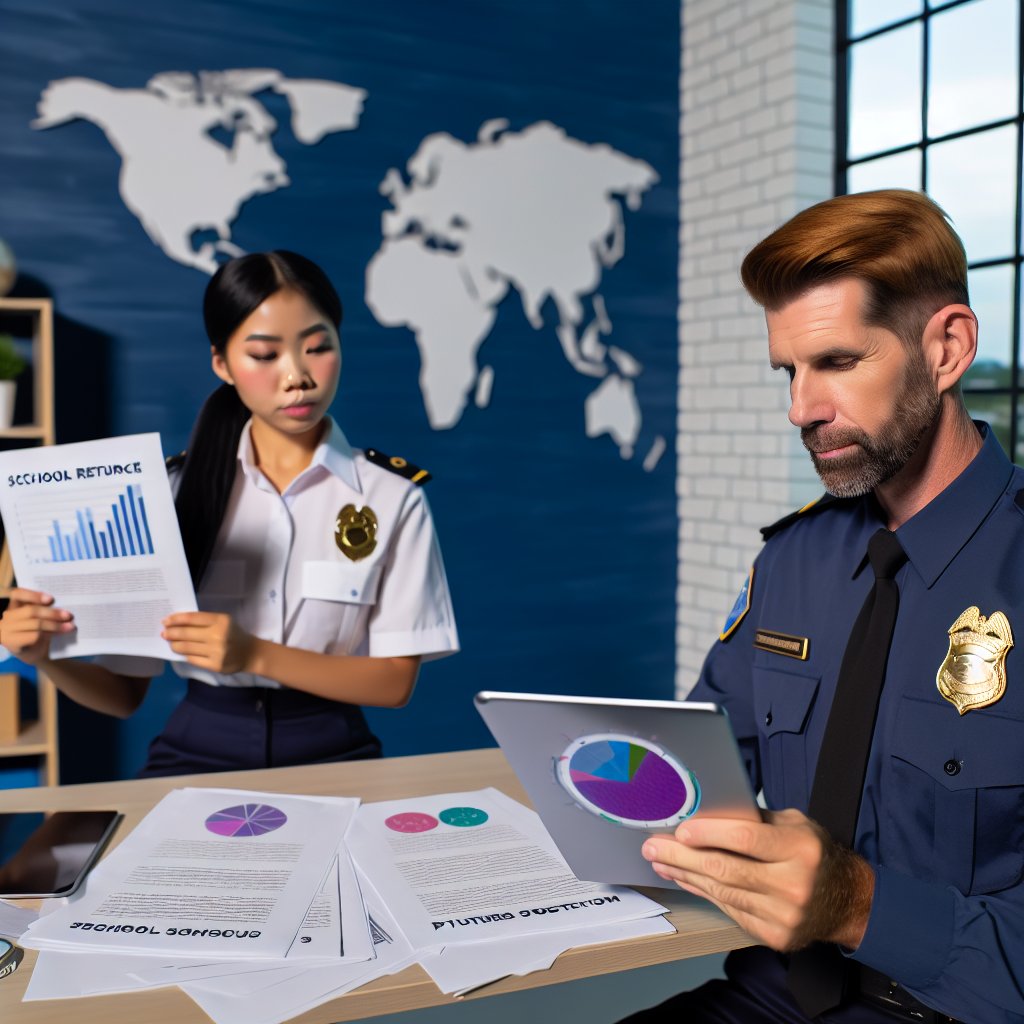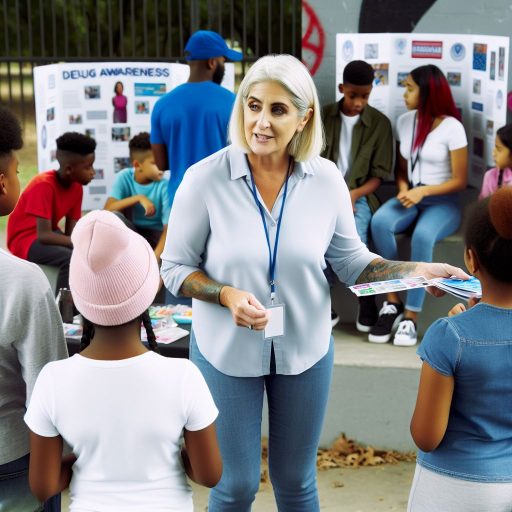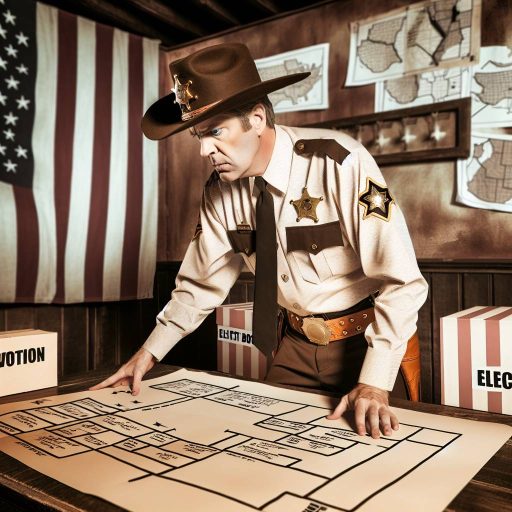Introduction
The School Resource Officer (SRO) profession plays a vital role in ensuring the safety and security of schools.
SROs are not just law enforcement officers but also mentors and educators to students.
As we look towards the future, several trends are emerging in the SRO profession that will shape their role in schools.
Rising Demand for Mental Health Support
One of the upcoming trends in the SRO profession is the increasing demand for mental health support.
SROs are now expected to address mental health issues and provide resources to students who may be struggling.
This trend highlights the need for SROs to have training and expertise in handling mental health crises.
Emphasis on Community Policing
Another trend in the SRO profession is the emphasis on community policing.
SROs are now encouraged to build strong relationships with students, families, and communities to create a safe and inclusive school environment.
This shift towards community policing aims to promote trust and collaboration between law enforcement and the community.
Specialization in Technology and Cyber Security
As technology continues to advance, SROs are expected to specialize in technology and cyber security.
SROs play a crucial role in educating students about internet safety and cyberbullying.
They are also responsible for investigating cybercrimes that may occur within the school community.
Specializing in technology and cyber security will be essential for SROs to effectively address digital threats and keep students safe online.
Focus on Diversity and Inclusion
Schools are becoming increasingly diverse, and SROs must be prepared to work with students from various backgrounds.
This trend emphasizes the importance of diversity and inclusion training for SROs to effectively support all students.
SROs are expected to create a welcoming and inclusive environment for everyone in the school community.
Increased emphasis on mental health training
In recent years, there has been a growing recognition of the importance of mental health training for School Resource Officers (SROs).
As SROs are often the first responders in schools, it is crucial that they are equipped to handle mental health crises effectively.
- Recognition of the need for SROs to be equipped to handle mental health crises
- Training programs being developed to educate SROs on mental health issues
- Collaboration between law enforcement and mental health professionals
Recognition of the need for SROs to be equipped to handle mental health crises
One of the key trends in the SRO profession is the acknowledgment that SROs need to be prepared to address mental health issues among students.
This includes recognizing the signs of mental health crises, de-escalation techniques, and referral processes.
Transform Your Career Today
Unlock a personalized career strategy that drives real results. Get tailored advice and a roadmap designed just for you.
Start NowTraining programs being developed to educate SROs on mental health issues
Many organizations and agencies are now investing in specialized training programs for SROs that focus specifically on mental health awareness and crisis intervention.
These programs aim to provide SROs with the knowledge and skills they need to support students who may be struggling with mental health issues.
Collaboration between law enforcement and mental health professionals
Another important development is the increasing collaboration between law enforcement agencies and mental health professionals.
By working together, SROs can benefit from the expertise and insights of mental health professionals, while mental health professionals can gain a better understanding of the role of SROs in schools.
The emphasis on mental health training for SROs is a positive trend that will help ensure the safety and well-being of students in schools.
By equipping SROs with the knowledge and skills they need to address mental health issues, we can create a safer and more supportive environment for all students.
Integration of technology in SRO duties
As we look towards the future trends in the School Resource Officer (SRO) profession, one key aspect that will play a significant role is the integration of technology in their duties.
This shift towards incorporating tech tools in their work will not only enhance the effectiveness of SROs but also improve school safety and security.
- Use of body cameras and surveillance technology in schools
- Implementation of apps or platforms for communication and incident reporting
- Training SROs on utilizing technology effectively
One of the main ways technology is being integrated into the SRO profession is through the use of body cameras and surveillance technology in schools.
Body cameras worn by SROs can provide valuable evidence in case of incidents, helping to ensure accountability and transparency in their interactions with students.
Surveillance technology, such as CCTV cameras, can also aid in monitoring school premises and detecting potential threats.
Implementation of apps or platforms for communication and incident reporting
Another trend we are seeing is the implementation of apps or platforms that facilitate communication and incident reporting for SROs.
These tools allow SROs to quickly communicate with school staff, administrators, and law enforcement in case of emergencies.
They can also streamline the process of reporting incidents, ensuring that they are documented accurately and efficiently.
Training SROs on utilizing technology effectively
With the increasing reliance on technology in the SRO profession, there is a growing need to train SROs on utilizing these tools effectively.
Training programs can help SROs understand how to use body cameras, surveillance technology, communication apps, and incident reporting platforms to their full potential.
By ensuring that SROs are proficient in using these tech tools, schools can maximize the benefits they provide in enhancing safety and security.
The integration of technology in SRO duties is a promising trend that has the potential to revolutionize the way SROs operate in schools.
By leveraging body cameras, surveillance technology, communication apps, and incident reporting platforms, SROs can enhance their effectiveness in ensuring school safety and security.
Proper training and support will be crucial in ensuring that SROs are able to utilize these tech tools to their full potential.
Transform Your Career Today
Unlock a personalized career strategy that drives real results. Get tailored advice and a roadmap designed just for you.
Start NowGain More Insights: Understanding Private Investigator Licensing Laws
Recognizing the diverse student population in schools
School resource officers (SROs) must understand the cultural backgrounds of the students they serve.
Training SROs on cultural sensitivity and inclusivity
It is essential for SROs to undergo training on different cultures, religions, and backgrounds.
Promoting diverse recruitment and hiring practices
Law enforcement agencies should prioritize diversity in their hiring process to reflect the communities they serve.
Gain More Insights: Essential Equipment for Disaster Response Coordinators
Shift towards restorative justice practices
As we look towards the future trends in the school resource officer (SRO) profession, one key aspect that is gaining traction is the shift towards restorative justice practices.
This approach emphasizes repairing harm, fostering empathy, and building positive relationships within the school community.
First and foremost, there is a movement away from punitive approaches to discipline.
Instead of focusing solely on punishment, SROs are being encouraged to look at the underlying issues and seek solutions that address the root causes of problematic behavior.
Moreover, training SROs in conflict resolution and restorative justice techniques is becoming more common.
By equipping SROs with the necessary skills to facilitate meaningful dialogue and resolution, conflicts can be resolved in a more constructive and lasting manner.
Restorative justice practices also place a strong emphasis on repairing harm.
This means that instead of simply punishing students for their actions, SROs are encouraged to work with them to understand the impact of their behavior and take steps towards making amends.
Furthermore, building relationships is at the core of restorative justice practices in schools.
SROs are encouraged to foster positive connections with students, staff, and parents to create a supportive and inclusive school environment where everyone feels valued and respected.
The shift towards restorative justice practices in the school resource officer profession represents a positive and forward-thinking approach to school safety and discipline.
By focusing on empathy, understanding, and relationship-building, SROs can play a vital role in creating a positive and nurturing school climate for all members of the community.
- Moving away from punitive approaches to discipline
- Training SROs in conflict resolution and restorative justice techniques
- Focus on repairing harm and building relationships in schools
Discover More: How to Become a Diplomatic Security Special Agent

Expansion of SRO roles beyond law enforcement
As the school resource officer (SRO) profession evolves, there is a growing trend towards expanding their roles beyond traditional law enforcement functions.
Schools are increasingly recognizing the value of SROs in promoting a safe and supportive environment for students, which goes beyond just enforcing the law.
Transform Your Career Today
Unlock a personalized career strategy that drives real results. Get tailored advice and a roadmap designed just for you.
Start NowHere are some key ways in which SROs are expanding their roles:
Involvement in mentorship programs
One of the emerging trends in the SRO profession is their involvement in mentorship programs for students.
SROs are uniquely positioned to build positive relationships with students and serve as role models.
By participating in mentorship programs, SROs can provide guidance, support, and encouragement to students, helping them navigate challenges and set goals for their future.
Providing support for students in crisis
Another important aspect of the expanded role of SROs is providing support for students in crisis.
SROs receive specialized training in crisis intervention and de-escalation techniques, allowing them to assist students who may be experiencing mental health crises, trauma, or other challenges.
By being present and available to help students in need, SROs contribute to creating a safe and inclusive school environment.
Collaborating with school staff and community resources for holistic support
Moreover, SROs are increasingly collaborating with school staff and community resources to provide holistic support for students.
By working together with school counselors, social workers, mental health professionals, and community organizations, SROs can address the diverse needs of students and enhance the overall well-being of the school community.
This collaborative approach ensures that students receive comprehensive support and resources to thrive academically, emotionally, and socially.
The future trends in the school resource officer profession point towards a more multifaceted role for SROs beyond law enforcement duties.
By expanding their roles to include mentorship programs, support for students in crisis, and collaboration with school staff and community resources, SROs play a vital role in fostering a safe, supportive, and inclusive school environment.
Learn More: Legal Framework Governing ICE Agent Operations
Addressing school safety and violence prevention
- Implementing active shooter training for SROs
- Developing emergency response protocols
- Work towards building a safe and secure school environment for students and staff
School safety is a top priority in today’s world.
The role of School Resource Officers (SROs) has become increasingly important in addressing this issue.
With the rise in school violence incidents, it is crucial that SROs are well-prepared to handle any situation that may arise on campus.
Implementing active shooter training for SROs
One way to enhance the capabilities of SROs in responding to active shooter situations is by providing them with specialized training.
This training should focus on tactics for quickly neutralizing a threat and ensuring the safety of students and staff.
Developing emergency response protocols
Having clear and well-defined emergency response protocols in place is essential for effective crisis management.
SROs should work with school administrators and local law enforcement agencies to establish protocols that outline specific actions to be taken during different types of emergencies.
Transform Your Career Today
Unlock a personalized career strategy that drives real results. Get tailored advice and a roadmap designed just for you.
Start NowWork towards building a safe and secure school environment for students and staff
Ultimately, the goal of SROs is to create a safe and secure school environment where students can learn and thrive without fear of violence.
This involves not only responding to incidents as they occur but also implementing preventative measures to reduce the likelihood of violence on campus.
By addressing school safety and violence prevention through initiatives such as active shooter training, emergency response protocols, and building a safe environment, SROs can play a vital role in ensuring the well-being of students and staff members.
It is an ongoing process that requires collaboration among school officials, law enforcement agencies, and the community as a whole.
Future Trends in the School Resource Officer Profession
In recent years, the role of School Resource Officers (SROs) has evolved dramatically.
SROs are now expected to not only provide security but also to build positive relationships with students.
This shift in focus towards community policing within schools reflects a growing emphasis on prevention rather than reaction.
The future trends in the School Resource Officer profession point towards a more holistic approach to school safety.
SROs will need to be equipped with a diverse skill set that includes crisis intervention, conflict resolution, and cultural competence.
Additionally, SROs will need to stay informed about mental health issues and be prepared to support students in crisis.
Technology will also play a significant role in the future of school policing, with SROs utilizing tools like body cameras and social media monitoring.
Overall, the future of the School Resource Officer profession requires a proactive and community-oriented mindset.
Implications for School Resource Officers
It is evident that the role of School Resource Officers is changing rapidly.
It is crucial for SROs to adapt to these evolving trends in order to meet the changing needs of schools.
I encourage all SROs to stay informed and prepared for the changes ahead in order to best serve their school communities.
Additional Resources
The Role and Impact of School Resource Officers | RAND
Home : Occupational Outlook Handbook: : U.S. Bureau of Labor …
[E-Books for Sale]
The Big Book of 500 High-Paying Jobs in America: Unlock Your Earning Potential
$19.99 • 500 High-Paying Jobs • 330 pages
Explore 500 high-paying jobs in America and learn how to boost your career, earn more, and achieve success!
See All 500 High-Paying Jobs of this E-Book
1001 Professions Without a Degree: High-Paying American Jobs You Can Start Now
$19.99 • 1001 Professions Without a Degree • 174 pages
Discover 1001 high-paying jobs without a degree! Unlock career tips, skills, and success strategies for just $19.99!




